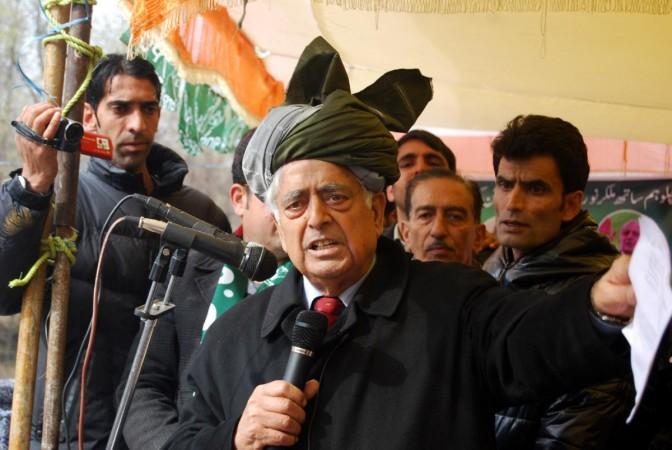
The deadlock regarding government formation in Jammu and Kashmir finally seems to be drawing towards a resolution with veteran PDP leader Mufti Muhammad Sayeed meeting Prime Minister Narendra Modi in the national capital on Friday.
"We should respect the mandate. I met the prime minister today (Friday) and this is an opportunity for both of us to work together," Mufti told reporters after the meeting.
"I and the prime minister (sic) had discussions on various issues regarding the state. However, all of them will be made public on the day of the swearing in-ceremony. There have been issues in Jammu and Kashmir and we have to build up a good government in the state," he said.
The meeting was held at 7 Race Course, the PM's official residence.
Earlier on Thursday, the anxious moments that cropped up in drafting of the common minimum programme (CMP) between PDP and BJP were sorted out after frantic consultations between the leaders of the two parties.
"Yes, a hiccup had occurred over the draft of the CMP between the two parties as Mufti Sahib wanted no ambiguity in the wording of the CMP draft. The obstacle has been overcome. Mufti Sahib is flying to New Delhi to meet the prime minister," a top PDP leader engaged in the negotiations with the BJP leadership said.
"The meeting between the two leaders is scheduled to take place tomorrow (Friday) following which the CMP would be announced. The new PDP-BJP coalition government will take oath in Jammu on Sunday and Modi and some senior union ministers will attend," said the source.
According to the source, after the Modi-Sayeed meeting, the BJP legislature party will choose Nirmal Singh as its leader in the assembly while the PDP will elect Sayeed to the post, reports IANS.
"After this, both the PDP and the BJP legislature parties will elect Mufti Sayeed as their joint leader to head the coalition. Once this is done, the coalition will stake claim to power in the state," the source said. Sayeed will be chief minister and Singh his deputy.
To begin with, six cabinet ministers from each party would be sworn in along with the chief minister.
The PDP has 28 members and an independent who got elected from Zanskar constituency of the Ladakh region has joined it. The BJP has 25 members while two legislators of the People's Conference headed by Sajad Gani Lone have already announced support to the BJP.
A simple majority of 44 in the 87-member state assembly is needed to stake claim on government formation.
Following the failure of any political party or a group of parties to stake claim to power in the state because of the fractured mandate in the five-phased assembly elections late last year, Jammu and Kashmir was put under the governor's rule on 8 January.
The CMP between the PDP and the BJP as per sources in the two parties would b e focused mainly on equitable development of all the three regions of the state.
The BJP and the PDP have agreed to respect Article 370 that governs the relationship between India's only Muslim majority state with the rest of the country as envisaged in the constitution.
It has also been agreed that the gradual withdrawal of the controversial Armed Forces Special Powers Act (AFSPA) from areas where levels of violence had appreciably come down would also be started.
The PDP has agreed to treat the issue of settlement of West Pakistan refugees as a humanitarian issue that needs to resolved without politicising it.
It has also been agreed that financial assistance would be provided so that the ownership of the NHPC-owned hydro power projects is transferred to the state.
In addition to this, the coal block allotted to the state in Andhra Pradesh will be used to generate 1,000 MW electricity that would take care of the power needs of the state.

















